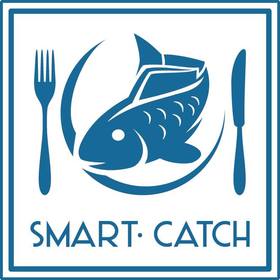 Paul Allen has a plan to save the world's supply of seafood: Eat more fish!
Paul Allen has a plan to save the world's supply of seafood: Eat more fish!
It's not that Americans don't like fish, don't go fishing, don't catch fish and don't eat fish. They do, but that last part, eating fish, they do that in restaurants. And restaurants serve mainly four fish: tuna, salmon, bass, and cod. Four fish whose popularity puts their very survival at risk.
All pretty big, as fish go. And they dominate the American fish market.
We humans have developed a preference for big animals (cows, pigs). American humans, at least, prefer beef to bunnies, even though rabbits, easy to raise and a fine source of protein, are devoured by families across the globe.
Paul Greenberg's 2011 book, "Four Fish," called attention to this paradox; he recommends eating smaller species like herring, mackerel, and butterfish. Restaurant chefs might think they can't sell "trash" fish, but now there's a new impetus to change the Americans consume the world's resources of shellfish and fin-fish by appealing to the chefs themselves.
Paul Allen, the Seattle mogul who co-founded Microsoft, who owns the Seahawks, and whose real estate company, Vulcan, has developed South Lake Union, has a keen interest in environmental stewardship, specifically sustainable seafood.
Now Vulcan's philanthropic arm has just launched a program called Smart Catch to encourage restaurants to serve more sustainable seafood.
Not a question of large of small, wild or farmed so much as pinpointing species that can maintain or increase production without jeopardizing the health of the marine ecosystem. The Monterey Bay Aquarium has been in the forefront of this effort for some time with a campaign to raise consumer awareness of endangered species through its SeafoodWatch recommendations (avoid farmed Atlantic salmon and bluefin tuna, for example, in favor of arctic char or Pacific albacore).
Yet it's not always clear, from a restaurant menu, where that dish of "seared tuna" comes from, and it's not always a sure thing that the server or even the chef know, either.
Hence the Smart Catch program, which trains chefs and restaurant staffs and encourages a 90 percent compliance with the latest environmental standards. Decals at the door and symbols on the menu will alert consumers to restaurants and specific dishes that meet the Smart Catch goals.
And hence also the nifty SmartCatch.fish website. (Betcha ya didn't know there even was a dot-fish top-level domain...but Paul Allen knew.)
Allen's group signed up some heavyweight chefs prior to launching. Along with several dozen other high-profile restaurants, both the Tom Douglas and Ethan Stowell restaurant groups have gone through the certification process.
Says Stowell: "We see Smart Catch as a great opportunity to keep diners engaged, simplify their decisions around seafood, and recognize restaurants that are leading the way in supporting environmentally responsible fisheries."
Beyond Stowell and Douglas, though, the Smart Catch battle will be fought at the intersection of restaurant buyers and seafood suppliers. Frozen fish sticks made with gawd-knows-what, breaded catfish burgers, "halibut cheeks" stamped out of skate wings, all basically delivery devices for tartar sauce and ketchup. Changing habits will take a long time.
Leave a comment